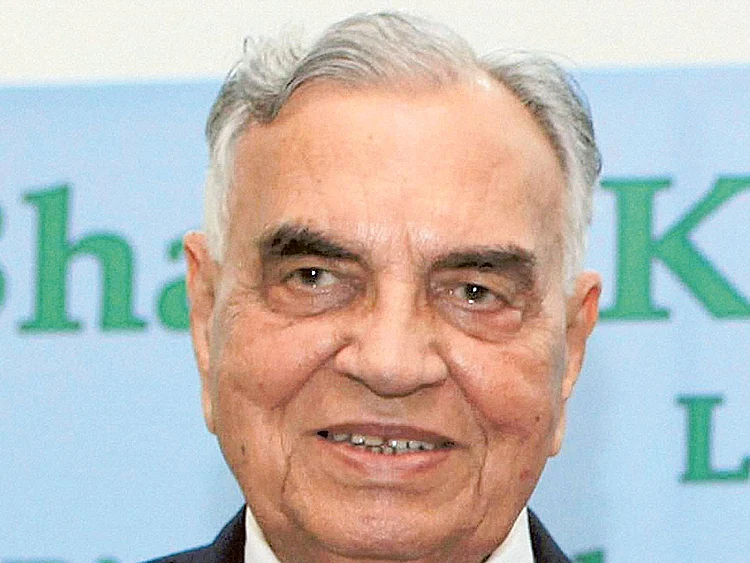New Delhi: Former Lok Sabha speaker and Congress veteran Balram Jakhar died here on Wednesday morning, his son Sunil Jakhar said. He was 92.
He died at around 7am at his New Delhi residence.
The cremation will be held at his native village Panchkosi near Punjab’s Abohar town at 11am on Thursday, said Sunil who is a former Punjab Congress Legislative Party leader.
Balram Jakhar had suffered a brain stroke a year ago. He is survived by two sons and two daughters.
He served as the speaker of Lok Sabha from 1980 to 1989 and played a key role in automation and computerisation of parliamentary works.
A farmer-turned politician, Jakhar, was an able administrator and had the rare honour of holding some of the highest constitutional posts including that of governor and Lok Sabha speaker.
Jakhar, 92, also had the rare distinction of being elected Lok Sabha Speaker for two successive terms from 1980 to 1989.
His term as Speaker saw some significant legislations being passed by the house and measures to improve its functioning.
In his long innings in politics, Jhakhar held several organisational posts in the Congress.
He served as union agriculture minister in the P.V. Narasimha Rao government and later as Madhya Pradesh governor during the first United Progressive Alliance government.
Born on August 23, 1923 at Panjkosi village in Ferozepur district of Punjab, Jakhar graduated from a college in undivided Punjab’s Lahore town and was well-versed in English, Sanskrit, Hindi and Urdu apart from Punjabi.
After graduation, Jakhar took up the family profession of farming and made use of modem techniques for the development of orchards and vineyards in his farmlands which led to increase in the crop yield.
Jakhar’s services in fruit-growing received national recognition and he was awarded the title ‘All India Udyan Pandit’ by the president in 1975.
It was his leadership role among the farming community that eventually pushed Jakhar into an active political role at the national level.
Jakhar’s legislative career began in 1972 when he was elected to the Punjab assembly.
Within one year of his election to the assembly, he was inducted as the deputy minister of co-operation, irrigation and power.
He remained a minister till 1977.
In 1977, when the Congress faced a rout, he won his election and was chosen as leader of the Congress (I) legislature party and recognised as the leader of opposition in the Punjab assembly.
He held the position till January 1980 when he was elected to the seventh Lok Sabha from Ferozepur.
He was elected speaker on January 22, 1980.
Though he had no experience as a presiding officer, Jakhar went about his new role with confidence and innate common sense.
He subscribed to the view that that the house is the ultimate master of its own procedures in a parliamentary democracy.
Following his re-election to Lok Sabha in 1984 from Sikar in Rajasthan, he was again elected the speaker. He was considered the natural choice for the post over the manner in which he had presided over proceedings of the seventh Lok Sabha.
Jakhar had earned the distinction of being the only speaker to have presided over two successive Lok Sabhas for their full terms, only about a month short of a full decade.
Sign up for the Daily Briefing
Get the latest news and updates straight to your inbox
Network Links
GN StoreDownload our app
© Al Nisr Publishing LLC 2026. All rights reserved.
